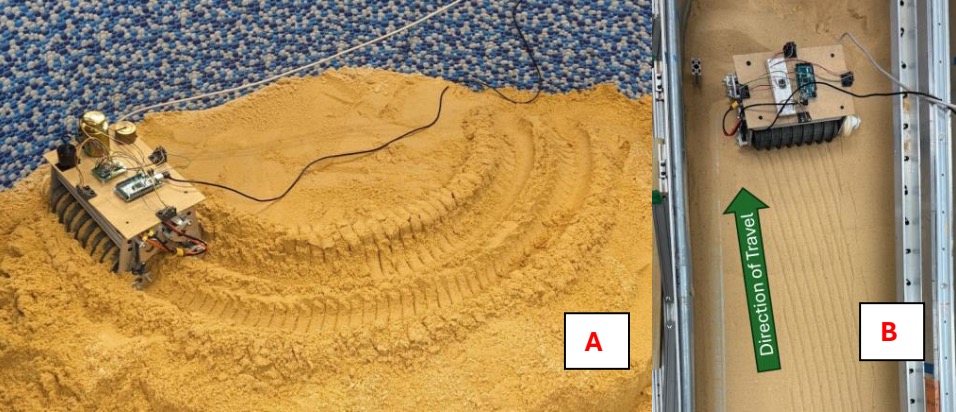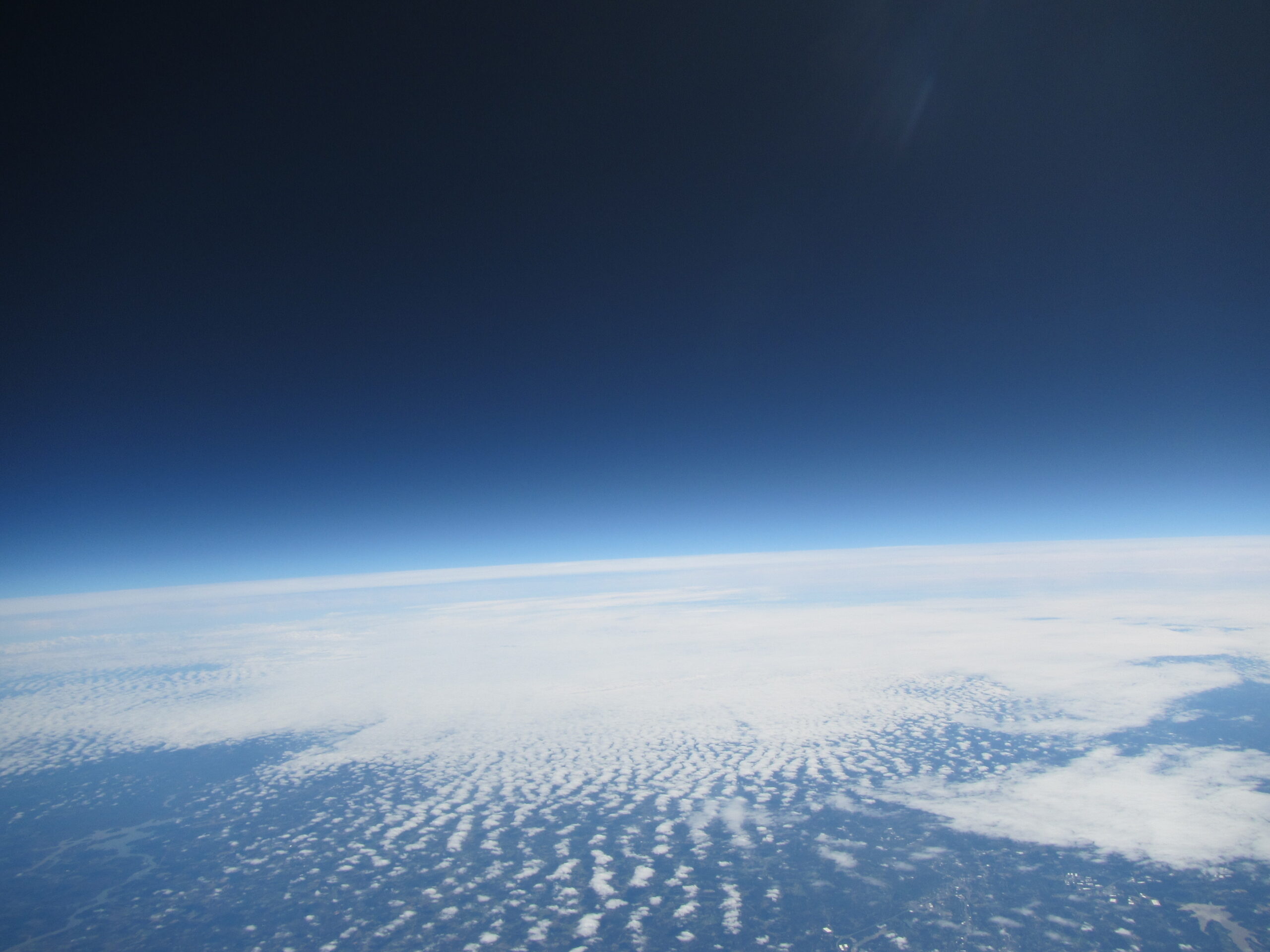Introducing the 2020 NC Sea Grant – NC Space Grant Fellow
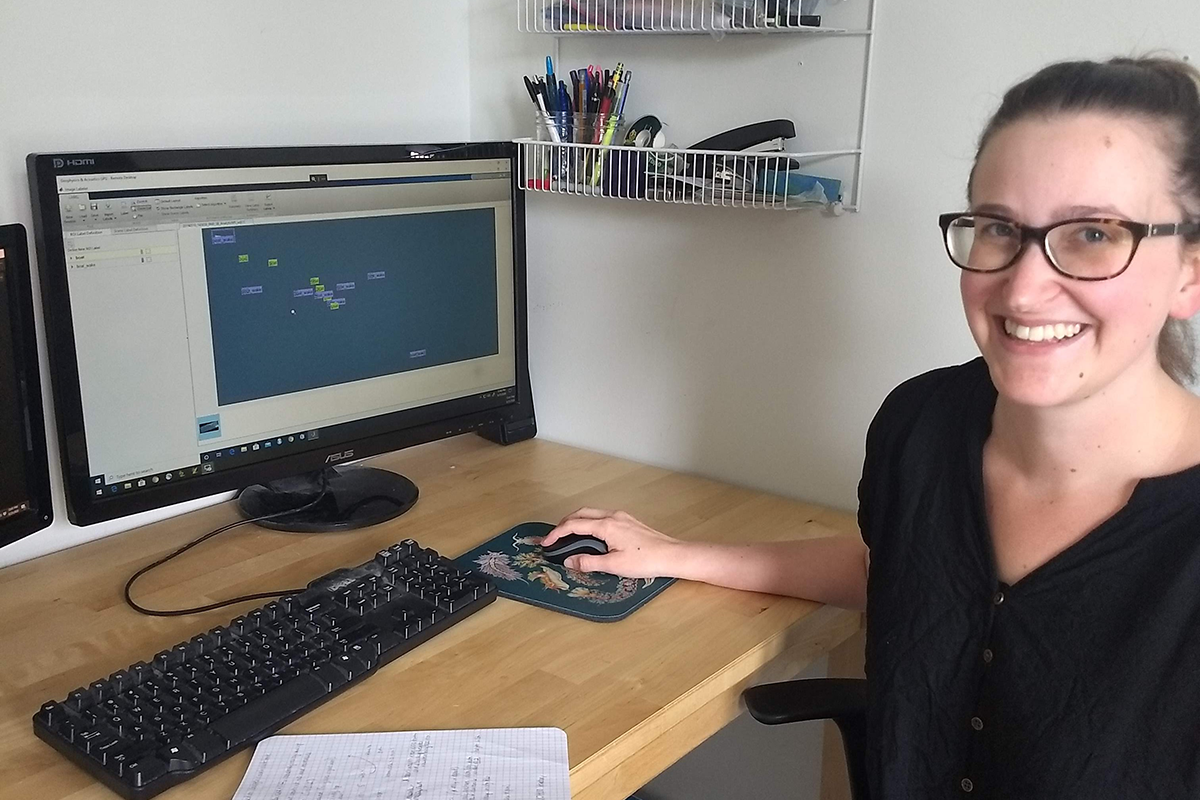
North Carolina Sea Grant and North Carolina Space Grant are pleased to announce selection of a new graduate student researcher for their 2020-21 joint fellowship program.
This year’s Graduate Research Fellow will be Shannon Ricci, a Ph.D. student in the Center for Geospatial Analytics at North Carolina State University. Ricci’s project is titled: “Monitoring visitation at North Carolina artificial reef sites using very high-resolution satellite imagery.”
The purpose of the joint fellowship is to support interdisciplinary approaches to address research needs for the state’s nearshore environments and coastal areas and watersheds. The fellowship specifically funds research projects that utilize relevant measurement instruments and/or remote-sensing data resources from NASA and the National Oceanic and Atmospheric Administration (NOAA).
“Rapid advances in technology — including widening access to satellite and remote-sensing data — are opening new avenues to study our state’s coastal region. Such novel research approaches ultimately will benefit the state’s ecology and economy,” notes John Fear, deputy director for North Carolina Sea Grant. “We are pleased to continue our collaboration with NC Space Grant to support interdisciplinary research.”

Ricci will be using remote sensing technology and satellite images to study how frequently recreational boats visit selected artificial reef sites the North Carolina Division of Marine Fisheries (NCDMF) maintains through its artificial reef program.
She hopes to use the satellite data as a tool to help assess visitation and usage patterns at the reef. Such a tool would help NCDMF managers assess the economic impact of the artificial reefs and evaluate the success of the program in providing recreational and educational opportunities to the surrounding community.
“We are doing a pilot study on four of the 43 reefs, with the hope of extending the approach to all 43 reefs,” Ricci says.
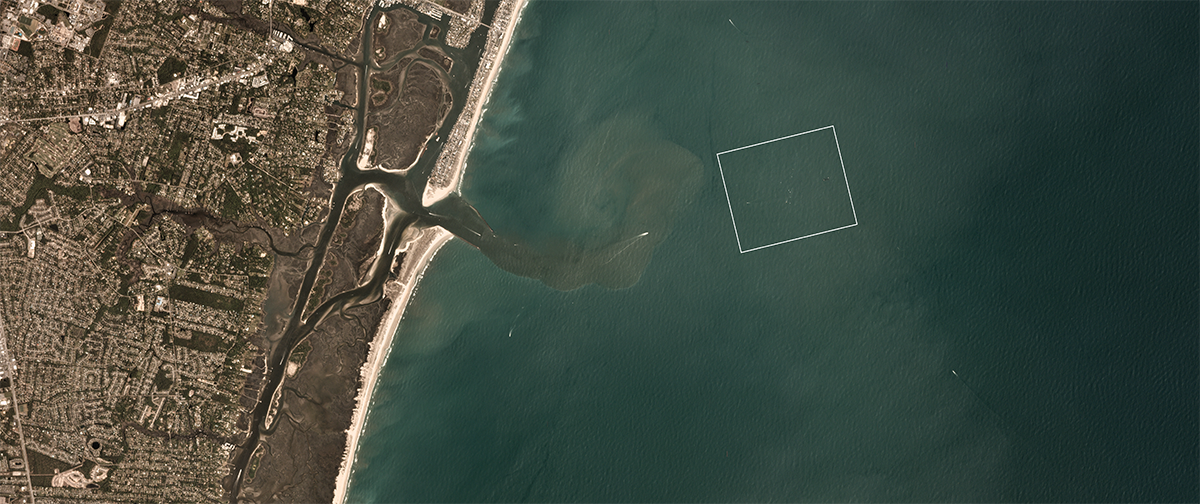
A box shows the location of one of the artificial reefs Ricci is studying, off the coast of Wilmington, North Carolina. 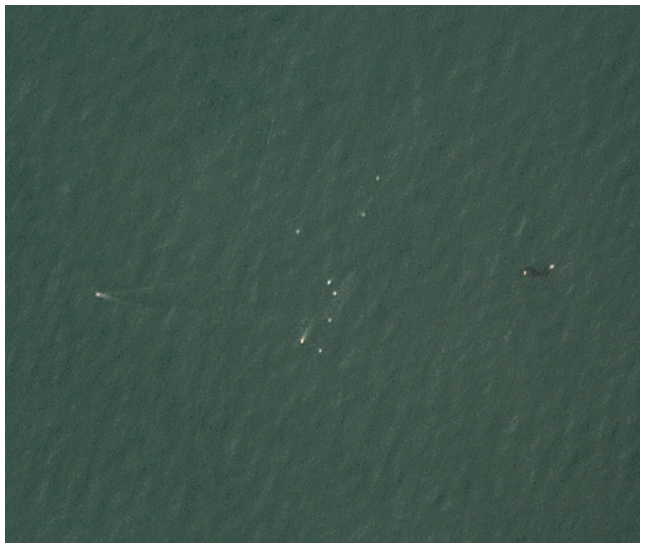
A closer view reveals tiny white dots showing the location of small boats near the artificial reef.
While environmental impacts of the reefs are well documented, economic impacts are less understood, particularly when it comes to knowing how often boats are visiting and using the reefs. To date, data on recreational fishing’s impact on the coastal region has been collected through boat-ramp surveys and mail-in surveys. Unfortunately, those methods are expensive and have garnered a limited response rate. Ricci hopes her technique of gathering data by directly monitoring the number of boats visiting the reefs will yield far more and better-quality data.
“Shannon’s research will utilize commercially-owned small satellites to collect data on artificial reef habitats,” says Jobi Cook, associate director for NC Space Grant. “These technologies are becoming an important part of NASA’s Commercial Smallsat Data Acquisition Program efforts to address environmental and societal challenges.”
Cook adds she is happy this research also meets goals and objectives for Sea Grant and NOAA, along with NASA and Space Grant, and thus fits the joint fellowship goal.
Read about the 2019-20 NC Sea Grant – NC Space Grant Fellows Emily Ury and Melinda Martinez and their study using remote sensing data from NASA to understand the impact of saltwater intrusion in North Carolina wetlands.
- Categories:
